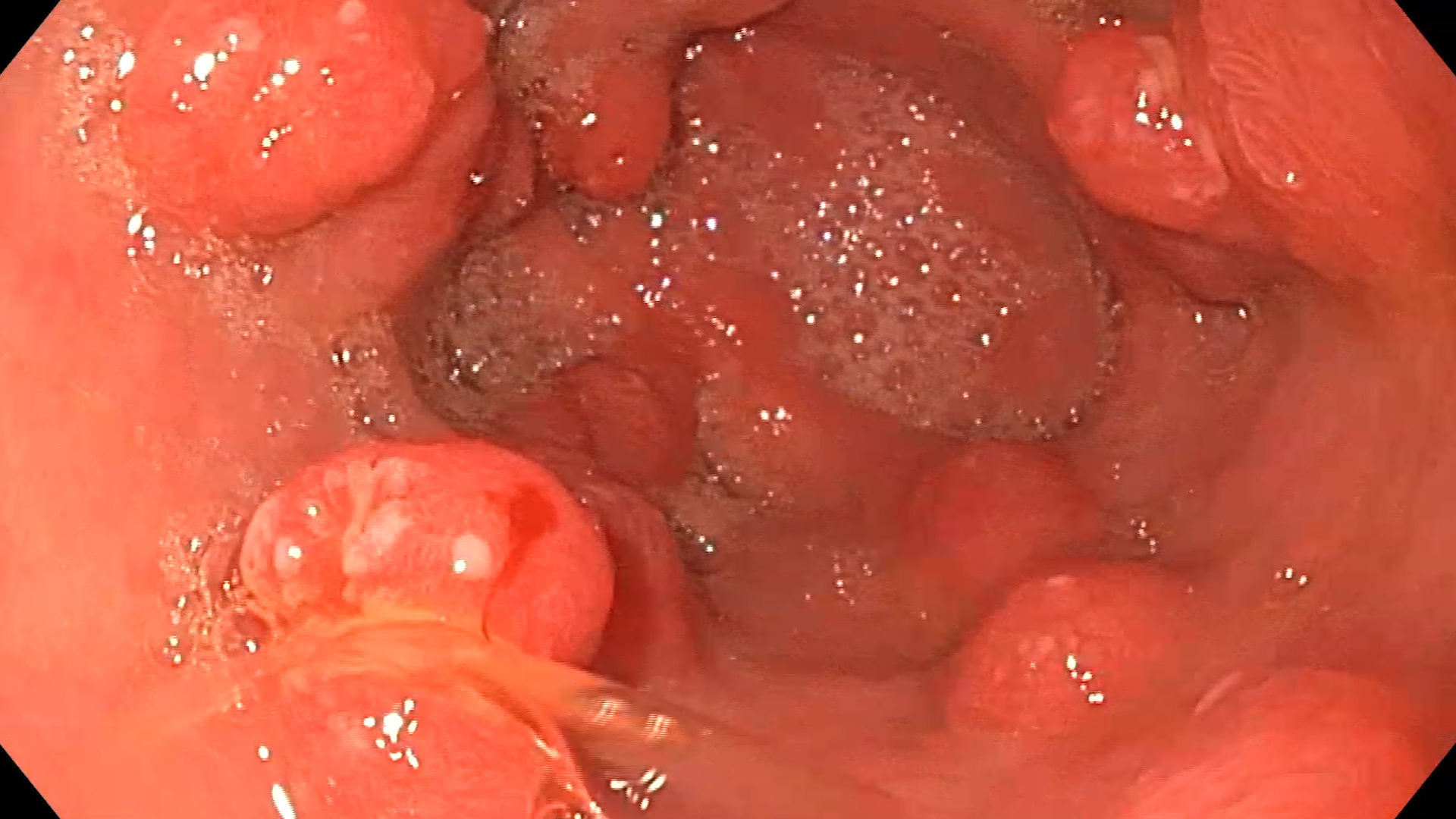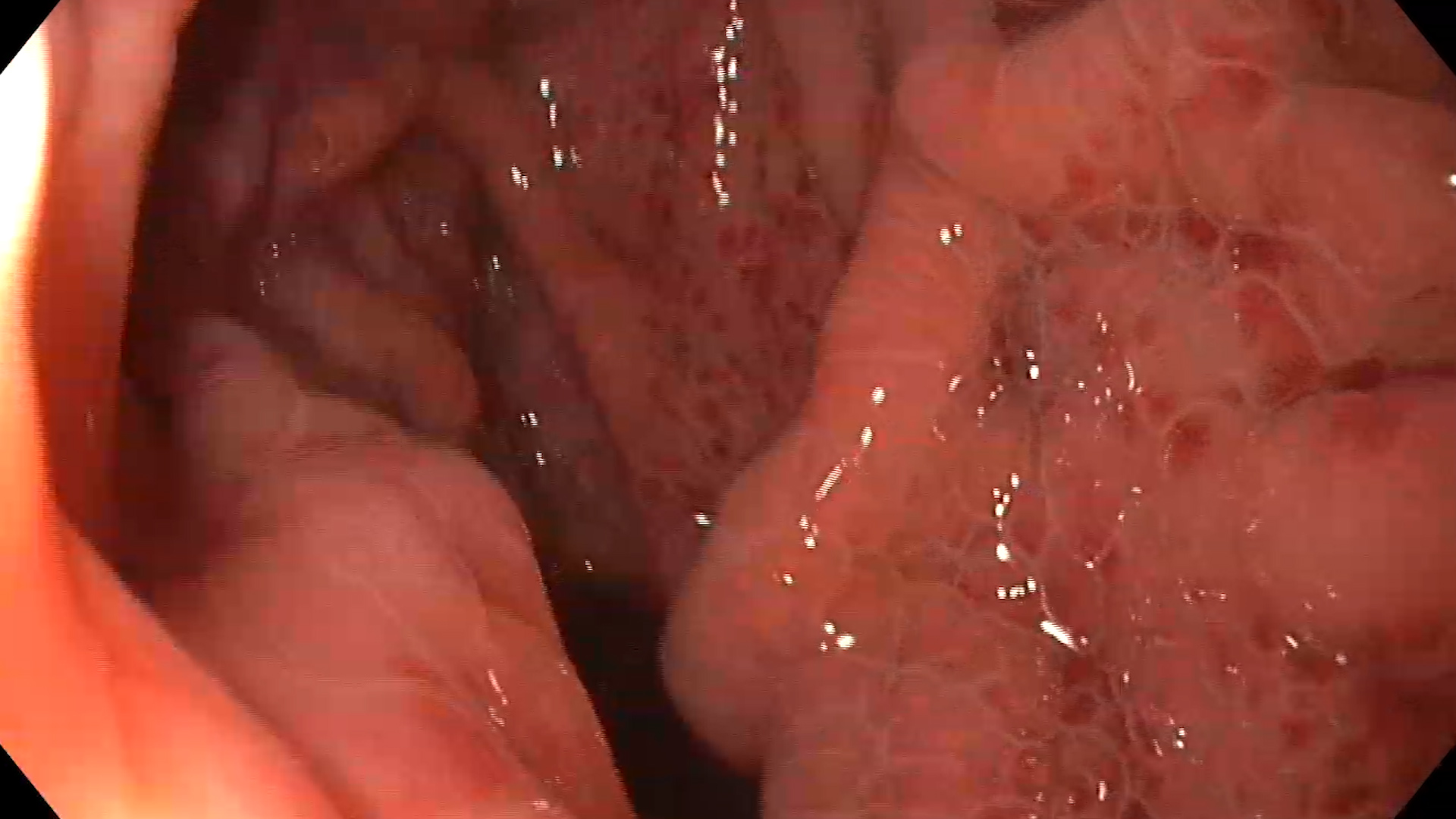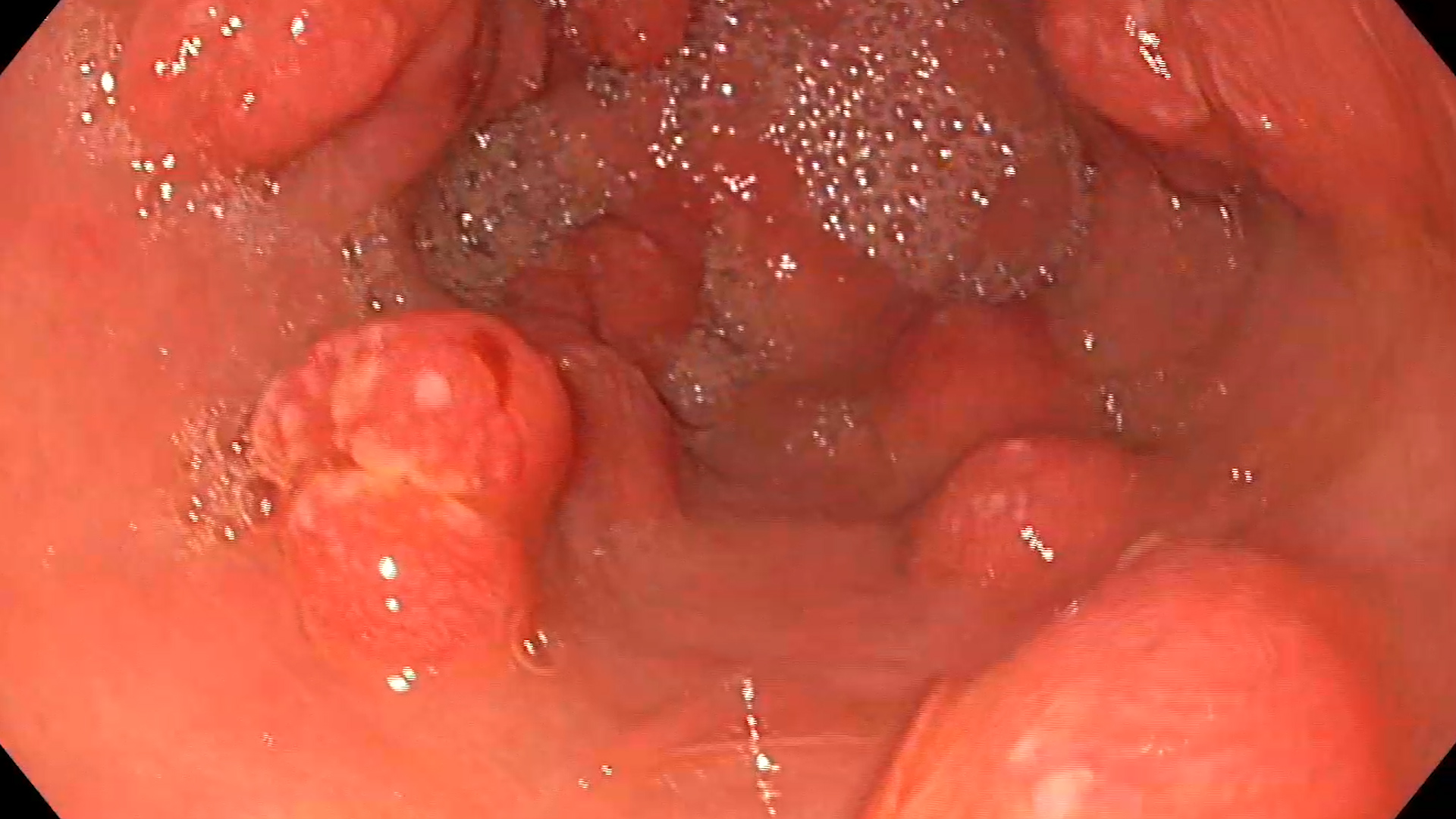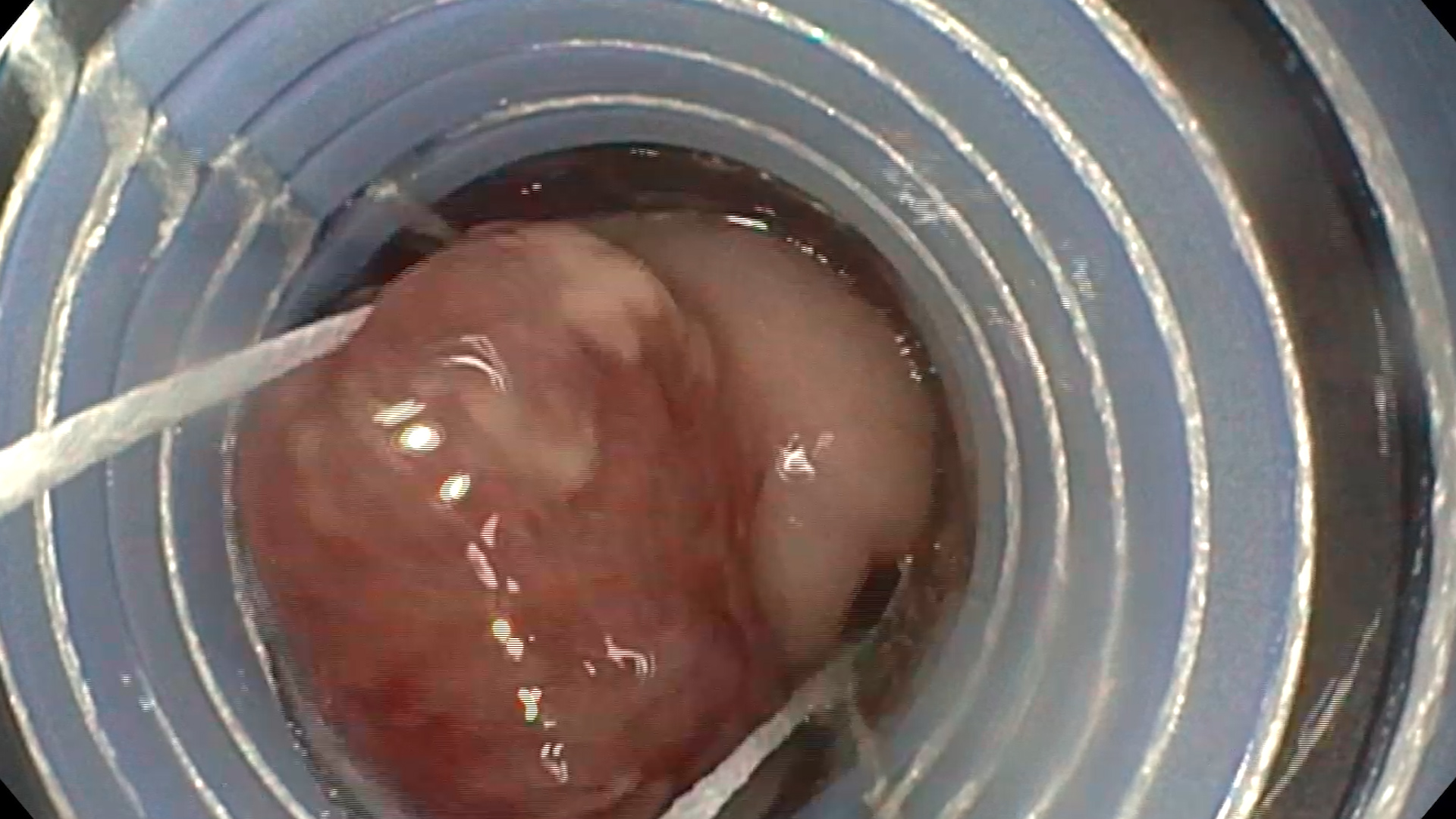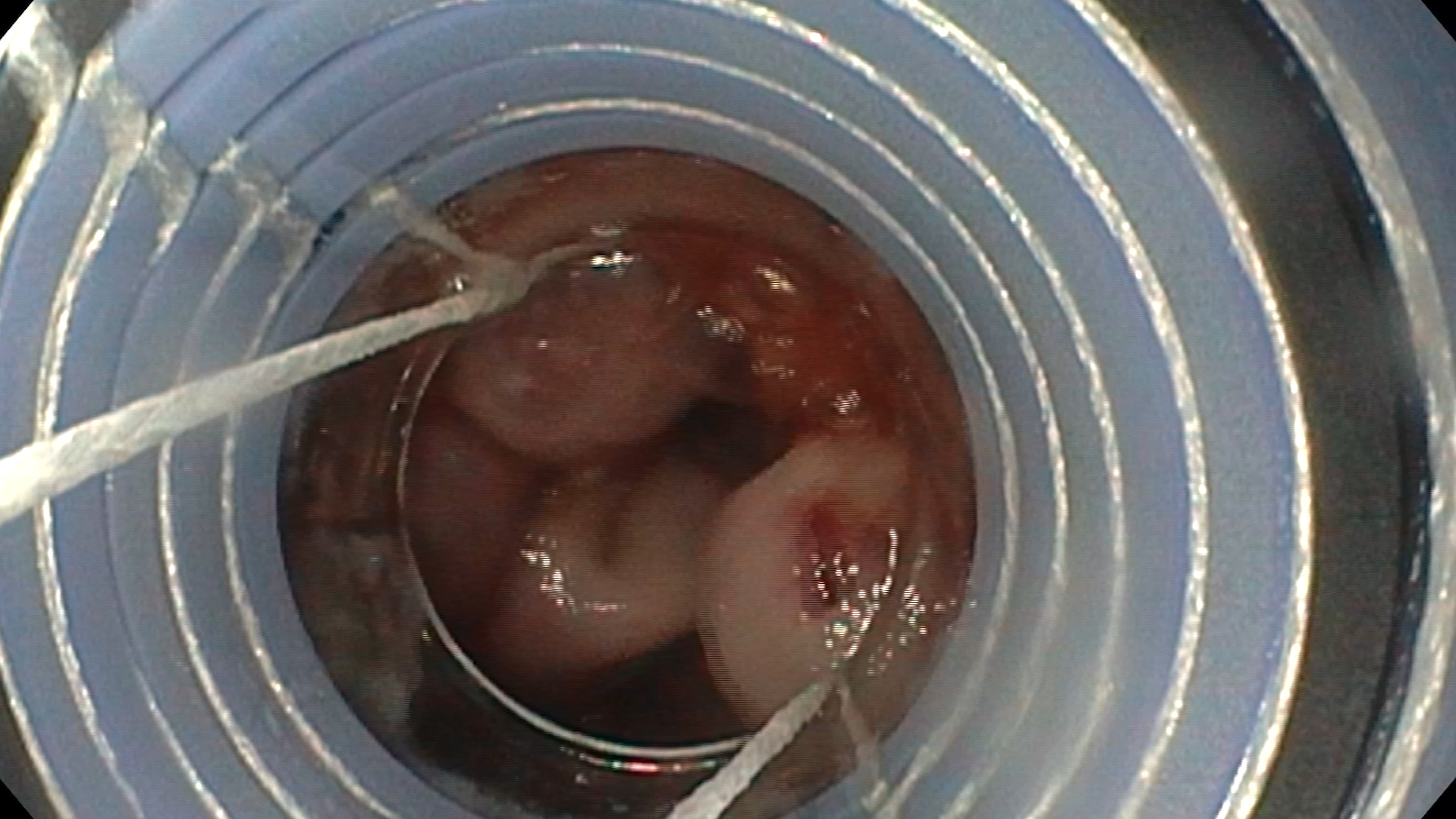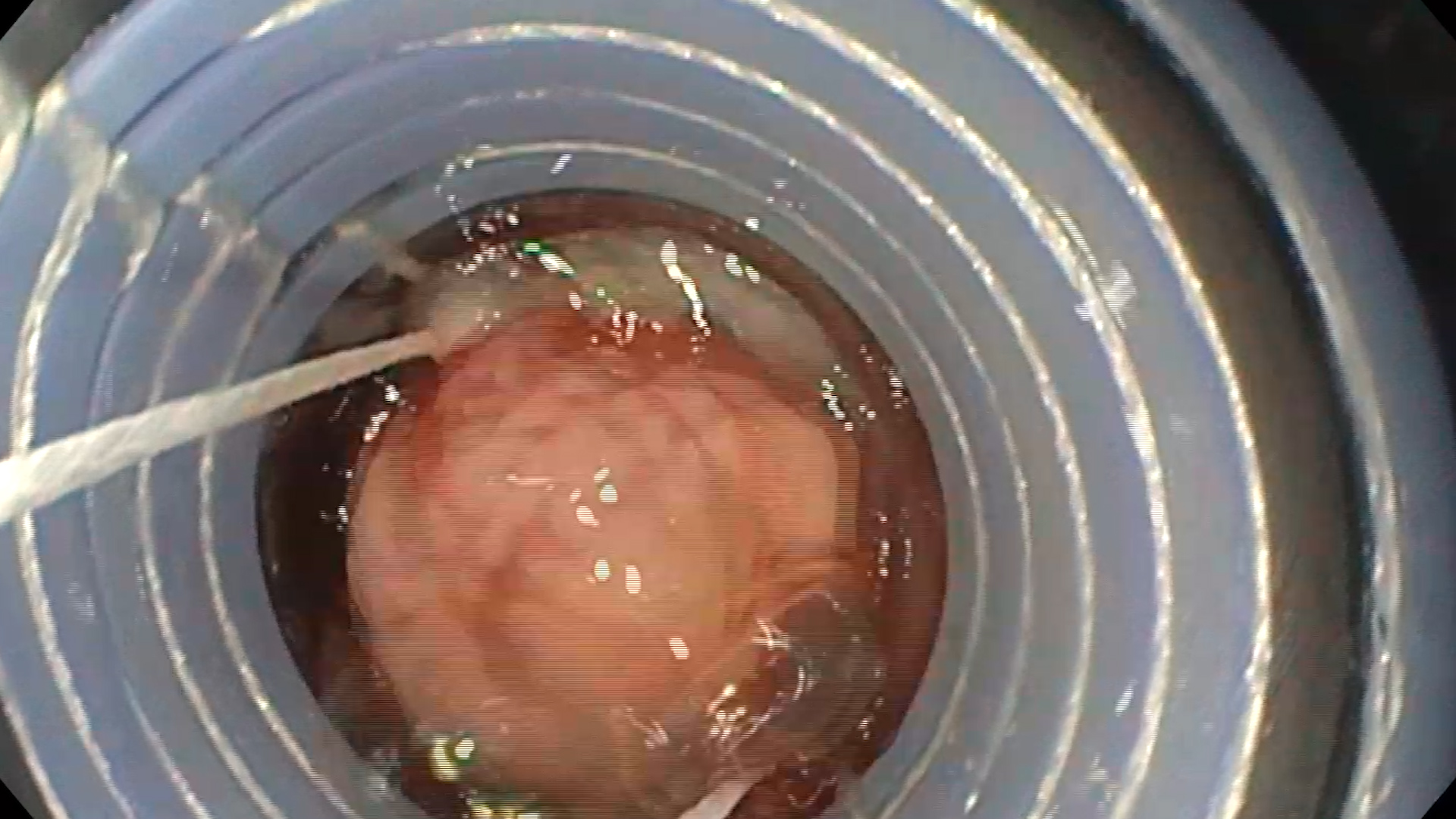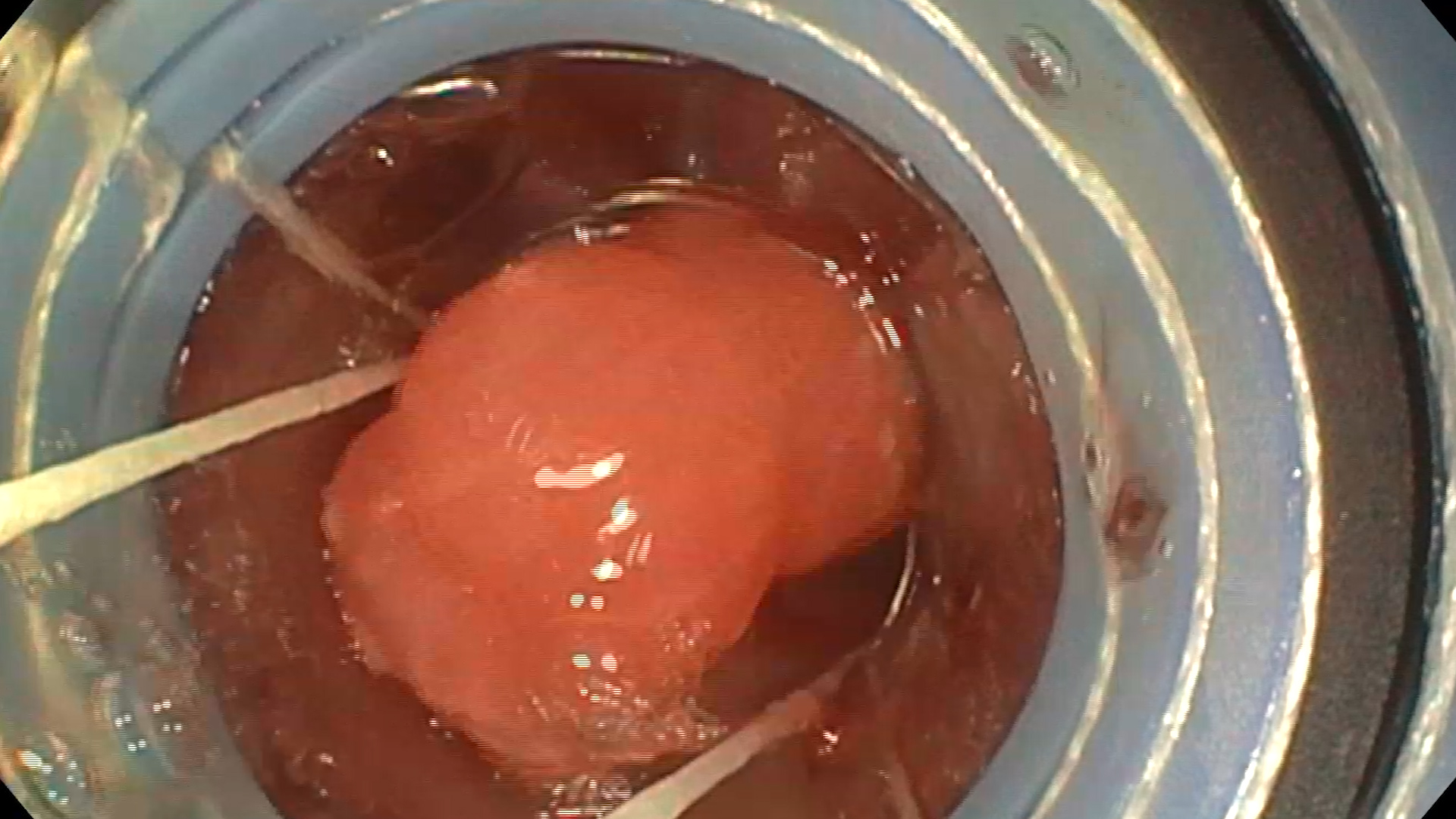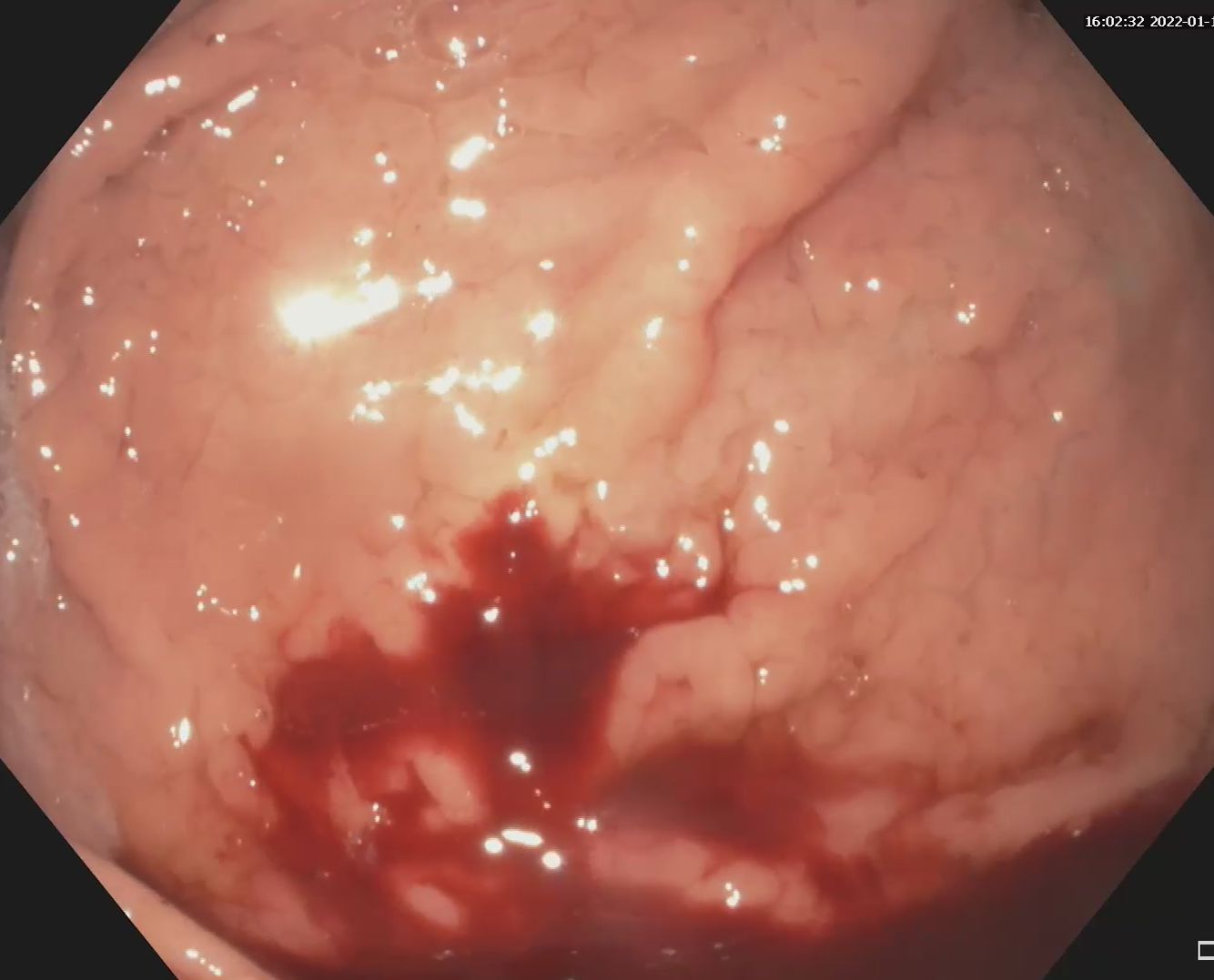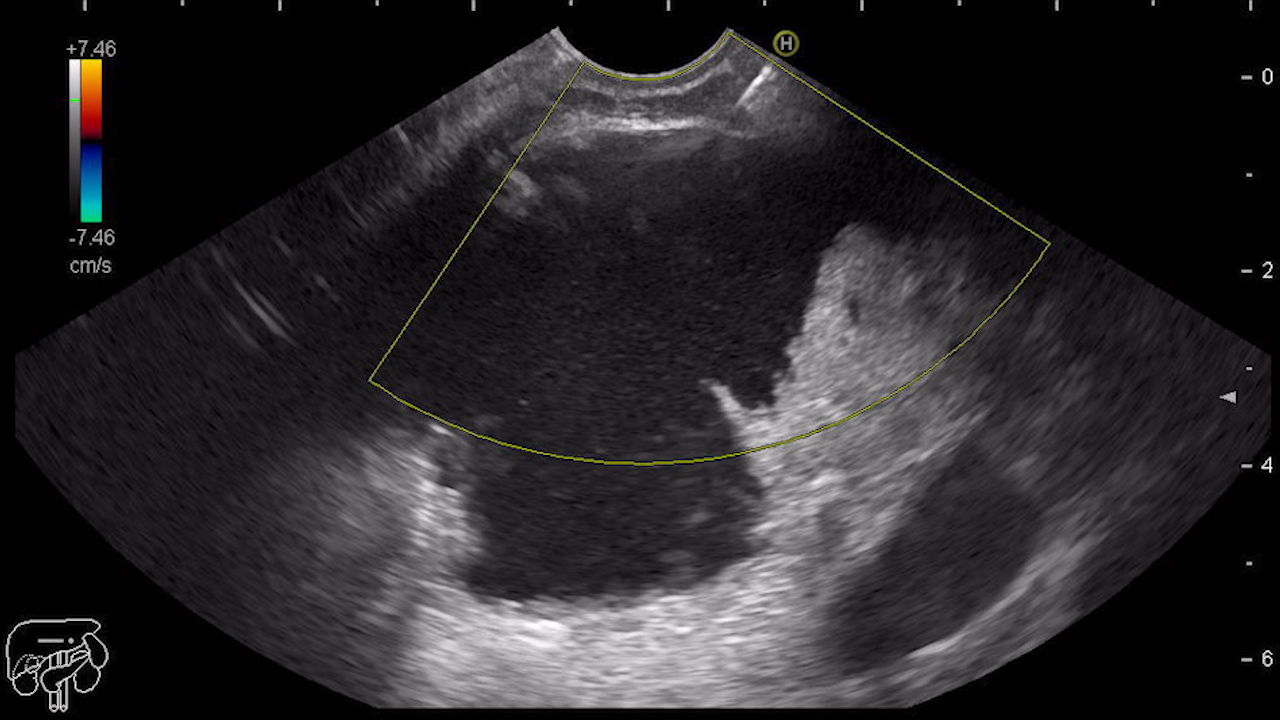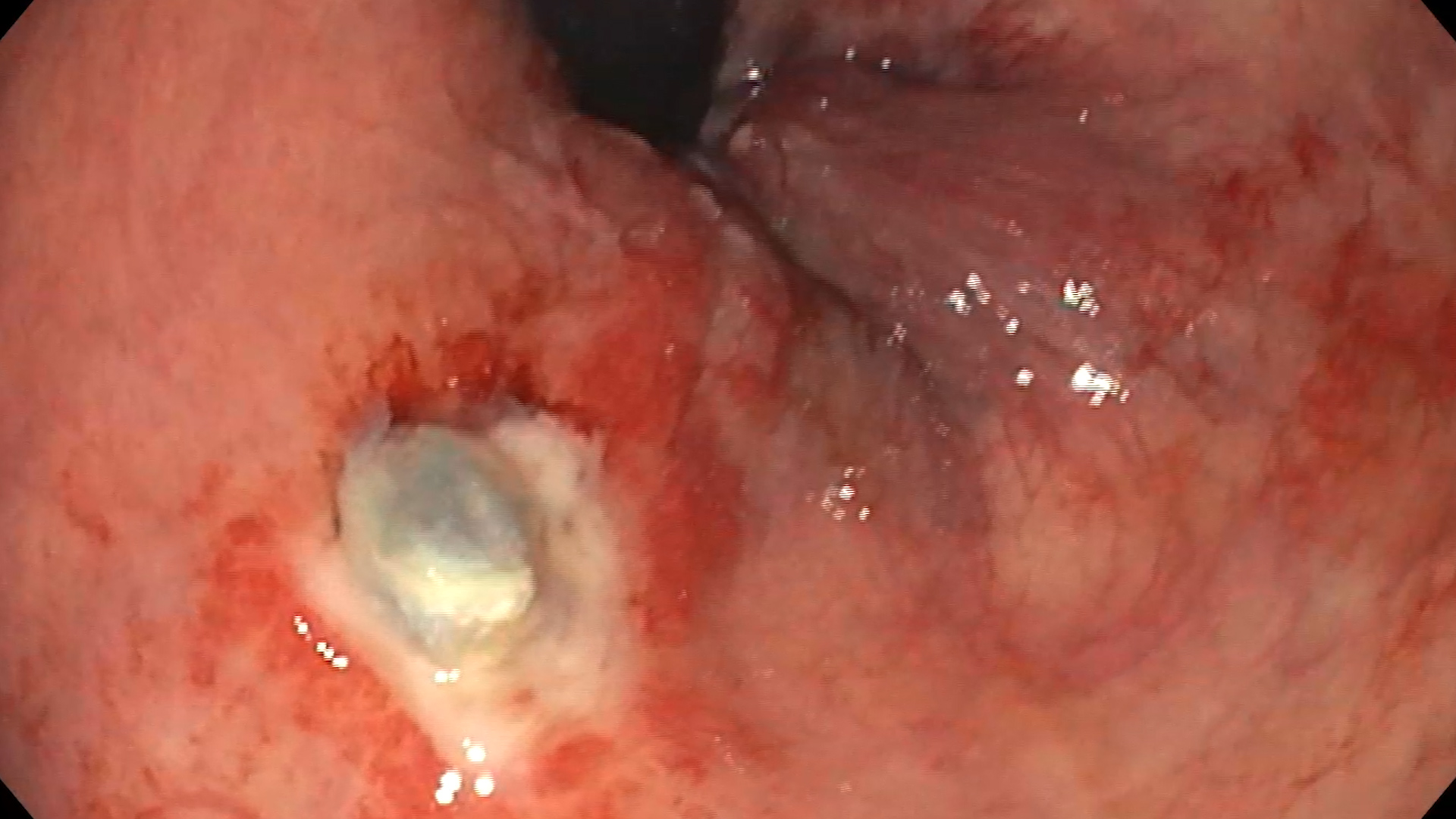See other cases
Portal Hypertensive Polyps
A 71-year-old patient diagnosed with alcoholic liver cirrhosis, grade II esophageal varices, severe portal hypertensive gastropathy (PHG) and history of upper digestive hemorrhage from PHG 6 months ago, presented to the gastroenterology clinic with significant fatigue.
Clinical: significant fatigue.
Biological: moderate microcytic, hypochromic anemia ( Hb= 8,1 g/dl), mild thrombocytopenia, prolonged coagulation time.
The upper GI endoscopy shows grade II esophageal varices without signs of recent bleeding; the stomach features severe PHG (intensely edematous, congested mucosa, with a mosaic appearance, with petechiae and some hemorrhagic suffusions at the level of the body and fornix); the antrum with edematous, congestive mucosa with multiple protruding, partially pediculated polyps, some with erosions and central ulcerations, others with blood fragments. Taking into consideration the increased risk of bleeding, the biopsy was delayed and it was initiated conservative medical treatment for liver cirrhosis and portal hypertension, with subsequent endoscopic reevaluation.
Upon re-evaluation, one month later, the patient presented persistent symptoms, with a drop in hemoglobin values up to 7 g/dl, microcytic hypochromic (Image 1). The second upper GI endoscopy found the previously described formations, EBL (endoscopic band ligation) was performed without incidents and biopsies were taken.
At subsequent evaluations, the patient presented improvement of symptoms, with the normalization of hemoglobin values, and from endoscopic view, the antral polypoid lesions were still visible, but numerically reduced compared to the previous examination. EBL was performed again with ensuing recommendation of proton pump inhibitors and medical treatment of cirrhosis and portal hypertension as well as endoscopic surveillance.
Gastric portal hypertensive polyps.
Polyps that appear as a result of portal hypertension are benign formations that protrude into the lumen of the gastrointestinal tract (especially at the gastroduodenal level), rarely encountered in medical practice, having a prevalence of approximately 2-3% among patients with portal hypertension. They can be asymptomatic, discovered incidentally during endoscopic procedures performed on patients with advanced liver cirrhosis, or they can present with specific occlusive symptoms or hemorrhage.
Their etiopathology is not fully known, however, many authors consider that the vascular congestion that occurs at this level among cirrhotic patients with portal hypertension, stimulates angiogenesis and cell proliferation, playing an important role in portal hypertension polyps development. (1, 2).
The anatomopathological examination of polyps resected from patients with portal hypertension, revealed hyperplasia of the epithelium, edema of the lamina propria and proliferation and ectasia of capillaries. In some cases, the presence of erosions and degeneration of the surface epithelium of the polyps was observed. (3)
The studies suggest that the portal hypertensive polyps do not have malignant potential, in some cases they even seem to respond to the treatment of portal hypertension. It has been observed that after polypectomy they tend to relapse, and so, both endoscopic surveillance and polypectomy should be considered as treatment options. (4)
- Seleem WM, Hanafy AS. Management of a Portal Hypertensive Polyp: Case Report of a Rare Entity. Gastrointest Tumors. 2019 Oct, 31768357, 6(3-4):137-141.
- Topal F, Akbulut S, Karahanlı C, Günay S, Sarıtaş Yüksel E, Topal FE. Portal Hypertensive Polyps as Gastroscopic Finding in Liver Cirrhosis. Gastroenterol Res Pract. 2020 Feb 26, 32184817, 2020:9058909.
- Lam MC, Tha S, Owen D, Haque M, Chatur N, Gray JR, Yoshida EM. Gastric polyps in patients with portal hypertension. Eur J Gastroenterol Hepatol. 2011 Nov and 22002002., 23(12):1245-9.
- Kara D, Hüsing-Kabar A, Schmidt H, Grünewald I, Chandhok G, Maschmeier M, Kabar I. Portal Hypertensive Polyposis in Advanced Liver Cirrhosis: The Unknown Entity? Can J Gastroenterol Hepatol. 2018 Aug 1 and 301554, 2018:2182784.

